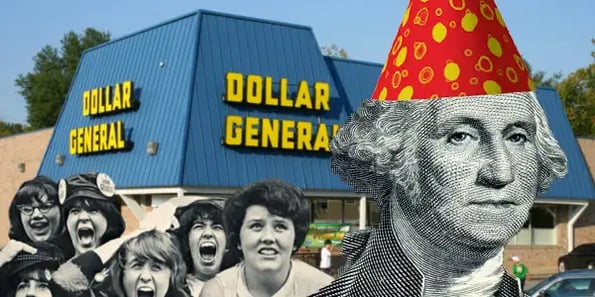The tiny rural towns that dot America’s heartland have long been considered unprofitable by big retailers like Walmart.

And another industry has capitalized on this neglect: dollar stores.
In places like Decatur, AR (population of 1,788), these stores have found a lucrative business peddling deeply-discounted, generic goods to economically disadvantaged communities.
Dollar store economics
The dollar store industry is dominated by two titans: Dollar General and Dollar Tree. Together, these chains have 27.5k locations in America — more than CVS, Rite Aid, and Walgreens combined.
Dollar General, the larger of the two, recently rolled out a $22B plan to open 1k new locations in lower-income, rural towns across the country.
Why invest there?
For starters, the average Dollar General only costs $250k to open (compared to $15m for Walmart), which makes going after smaller, neglected markets feasible.
While dollar stores have relatively low average sales ($229 per square foot, compared to the $325 industry average), their profit margins, at 31%, are far above average — thanks to the extremely low input cost of their generic goods.
Another reason: the poor communities they’re operating in aren’t as likely to migrate to Amazon for their shopping trips. The average customer spends $10 per trip and prioritizes convenience and value over variety.
The dark side
Dollar stores thrive in periods of economic decline — and since the US is humming along at large, they’ve resorted to setting up shop in middle-America towns that have a history of struggling.
On the one hand, these stores are adding convenience to people in food deserts (AKA, areas that don’t have any grocery stores nearby)…
But they’re also betting on a “permanent underclass” in America. As one real estate analyst tells Bloomberg, “It’s based on the concept that the jobs went away, and the jobs are never coming back, and that things aren’t going to get better in any of these places.”
